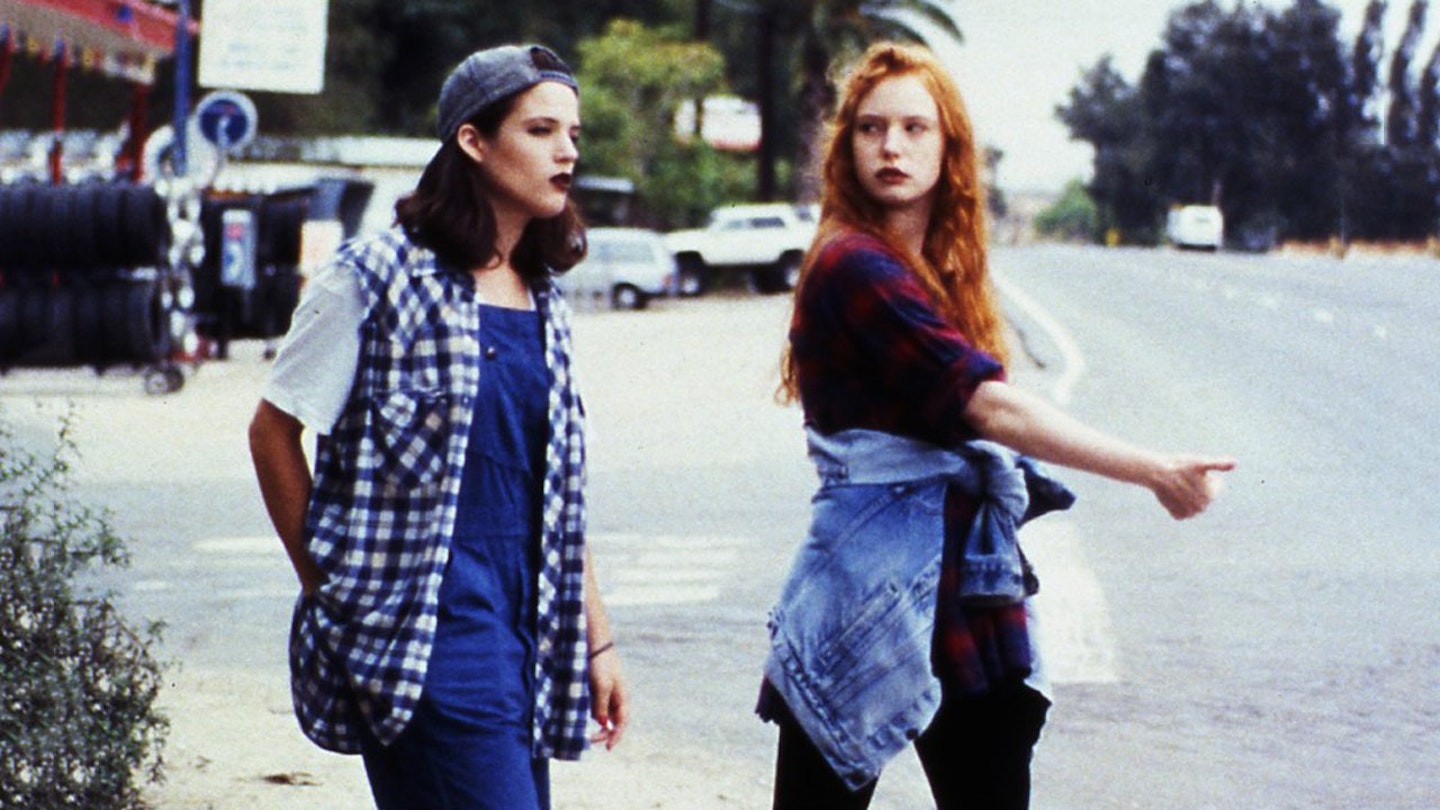A low-budget addition to the burgeoning girl killers genre headed so attractively by Heavenly Creatures, this distinguishes itself by the fact that it's less glossy, less interested in extravagant fantasy and more concerned in framing its story through the eye-glass of reality. The result is artier and sparer, and none of the worse for that. The central performances still spark like an electrical charge, and the harsh examination of L.A. micro-mall culture gives it a snazzy, juicy look.
The story is mainly told in flashback. Hilary is the angular, highly controlled one - you sense that her stories of child abuse are all too true. Bonnie, by contrast, is the softer, crazier one. She, rather than Hilary, seems to crave fantastical delusions. Together they go on a wild tour of Canyon County, in north Los Angeles, which ends with them knocking off a little old lady in her kitchen.
Partly, the murder is a culmination of their search for excitement. Partly, it's a way of escaping their suburban destiny. The film tries to uncover the reason by having the flashbacks intercut with black-and-white footage of the two girls in a juvenile detention centre, where a psychiatrist (Leslie Hope) is trying to get one angle on their story, while a sleazebag reporter (Moses) is trying for another.
